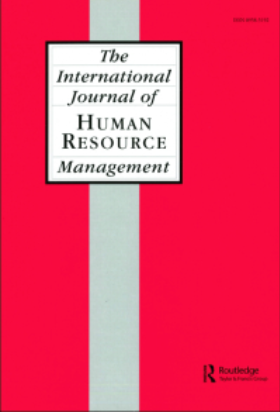Working time mismatch and job satisfaction – the role of employees’ time autonomy and gender
IF 5.9
2区 管理学
Q1 MANAGEMENT
International Journal of Human Resource Management
Pub Date : 2023-03-25
DOI:10.1080/09585192.2023.2190036
引用次数: 1
Abstract
Evidence shows that working time mismatch, i.e. the difference between actual and desired working hours, is negatively related to employees’ job satisfaction. Using longitudinal data from the German Socio-Economic Panel, we examine the potential moderating effect of working time autonomy on this relation and we also consider the corresponding role of gender. First, individual fixed effects panel estimations reaffirm both the negative link of working hours mismatch and the positive relation of working time autonomy to employees’ job satisfaction. Second, our results show a positive moderating relation of working time autonomy on the link between mismatch and job satisfaction. Third, our analyses hint at gender-specific differences: particularly women seem to benefit from the moderation role of working time autonomy.工作时间错配与工作满意度——员工时间自主权和性别的作用
有证据表明,工作时间不匹配,即实际工作时间与期望工作时间之间的差异,与员工的工作满意度呈负相关。使用来自德国社会经济小组的纵向数据,我们研究了工作时间自主权对这种关系的潜在调节作用,我们也考虑了性别的相应作用。首先,个体固定效应面板估计重申了工作时间错配与员工工作满意度的负相关关系和工作时间自主性与员工工作满意度的正相关关系。第二,工作时间自主性对错配与工作满意度之间的关系具有正向调节作用。第三,我们的分析暗示了性别差异:尤其是女性似乎受益于工作时间自主权的调节作用。
本文章由计算机程序翻译,如有差异,请以英文原文为准。
求助全文
约1分钟内获得全文
求助全文
来源期刊
CiteScore
11.70
自引率
7.10%
发文量
77
期刊介绍:
International Journal of Human Resource Management is the forum for HRM scholars and professionals worldwide. Concerned with the expanding role of strategic human resource management in a fast-changing global environment, the journal focuses on future trends in human resource management, drawing on empirical research in the areas of strategic management, international business, organizational behaviour, personnel management and industrial relations that arise from: -internationalization- technological change- market integration- new concepts of line management- increased competition- changing corporate climates Now publishing twenty-two issues per year, The International Journal of Human Resource Management encourages strategically focused articles on a wide range of issues including employee participation, human resource flow, reward systems and high commitment work systems. It is an essential publication in an exciting field, examining all management decisions that affect the relationship between an organization and its employees. Features include; -comparative contributions from both developed and developing countries- special issues based on conferences and current issues- international bibliographies- international data sets- reviews

 求助内容:
求助内容: 应助结果提醒方式:
应助结果提醒方式:


